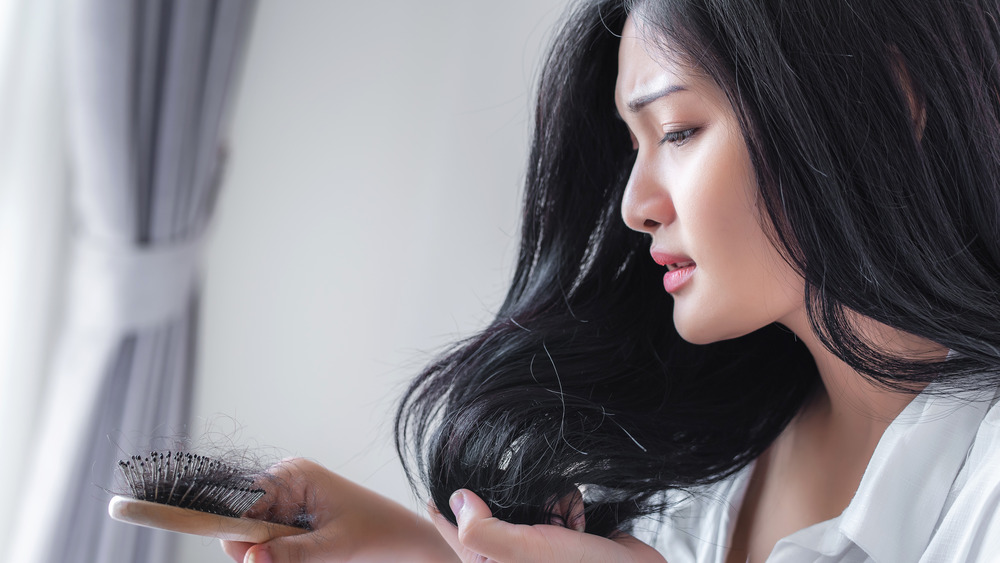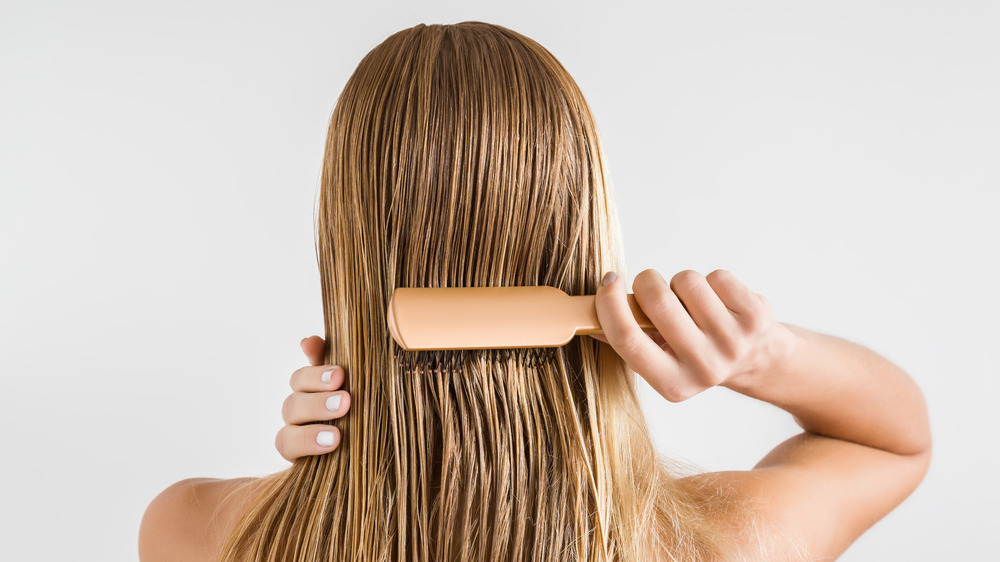Here's When You Should Really Replace Your Hairbrush
During our younger days, many of us learned that it's important to wash our makeup tools and hairbrushes every few weeks. We started out excited to be old enough to undertake such an important responsibility and, slowly but surely, our enthusiasm for the practice waned. If this story sounds familiar, you likely need to take a closer look at your hairbrush — a surface that is commonly teeming with bacteria and yeast.
According to Byrdie, using the same hairbrush for years at a time can be disastrous for your scalp and move bacteria all over your mane. The outlet suggests replacing your tool every six to 12 months, with synthetic brushes having a shorter shelf life than other types. The reasons for the somewhat rapid replacement are plenty, but they mainly involve bacteria. Dawn Clemens, a hairstylist and beauty blogger, explains to the outlet, "Your hairbrush contains bacteria and dust that builds up on a daily basis."
Furthermore, between yeast and dandruff present on your scalp, your brush also recycles the old particles onto your strands every time you use it. If you haven't washed your tool or gotten a new one in a few months, that can build up to a lot of bacteria. A tell-tale sign that your brush needs a replacement is missing bristles, according to Byrdie. Without these, your styling routine will likely be less than effective and you'll likely need more heat which isn't great for damaged hair.
Old brushes can impact your hair's appearance
Now that we're clear on how much gross stuff your hairbrush can accumulate, it's easier to understand how old brushes can impact your styling. Women's Health explains that, with so much build-up between the bristles, they can't go deep enough into your tresses to properly remove tangles. The outlet even dubs the process "pointless" as it underpins the amount of oil, shampoo, and dirt that can be present between your bristles.
Plus, this issue can seriously impact the way your hair looks after you've styled it. If you hop out of the shower with clean hair and quickly run your dirty brush through it, it can negate all of the products you've used to keep your strands looking voluminous. Tsippora Shainhouse, board-certified dermatologist tells the outlet, "Dirty brushes can make clean hair look dirty, greasy, and weighed down. The product debris can irritate the scalp, which can lead to redness, itch, and scale."
She adds, "If you have dandruff, which is caused by a skin reaction to yeast, you can put the yeast right back onto your scalp and make your dandruff worse."
To prolong the life of your tool, wash it once a week with baking soda and a toothbrush, the outlet recommends. But, keep an eye on the appearance of its bristles — any damage is a sign that it's time for a new one.

